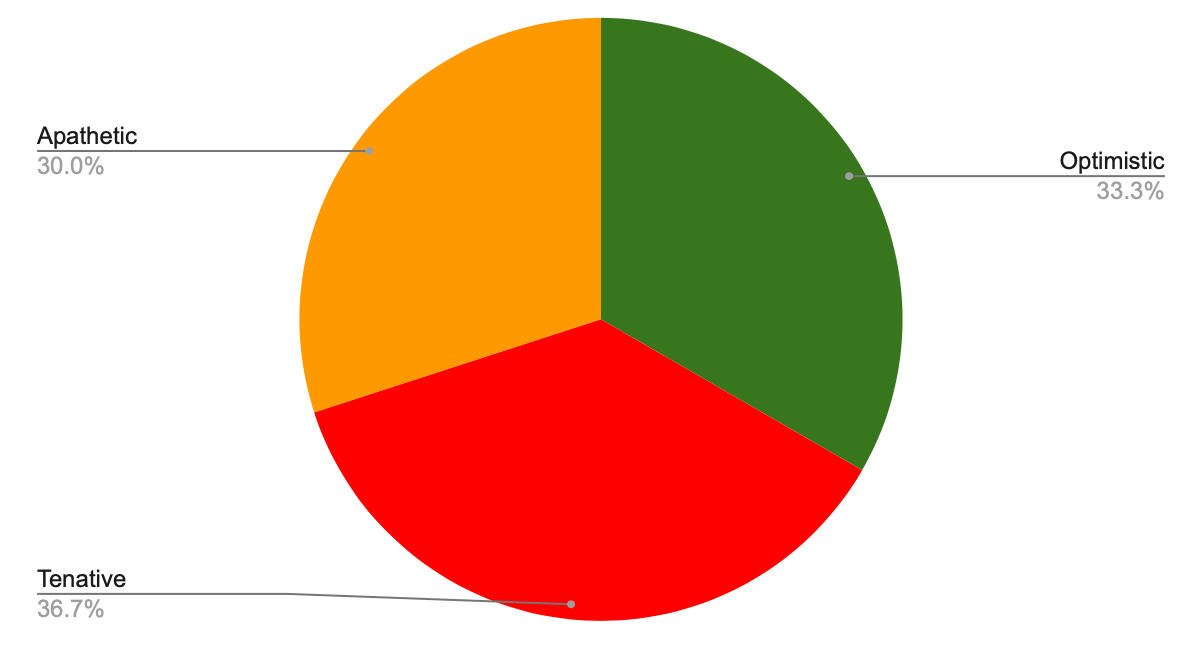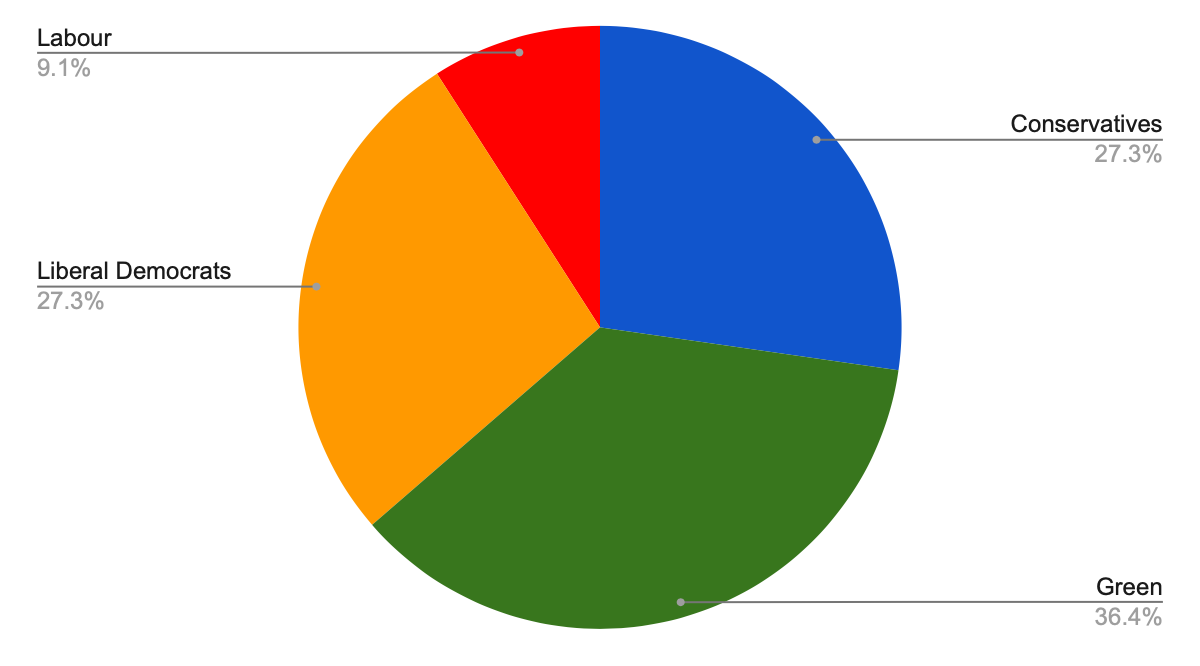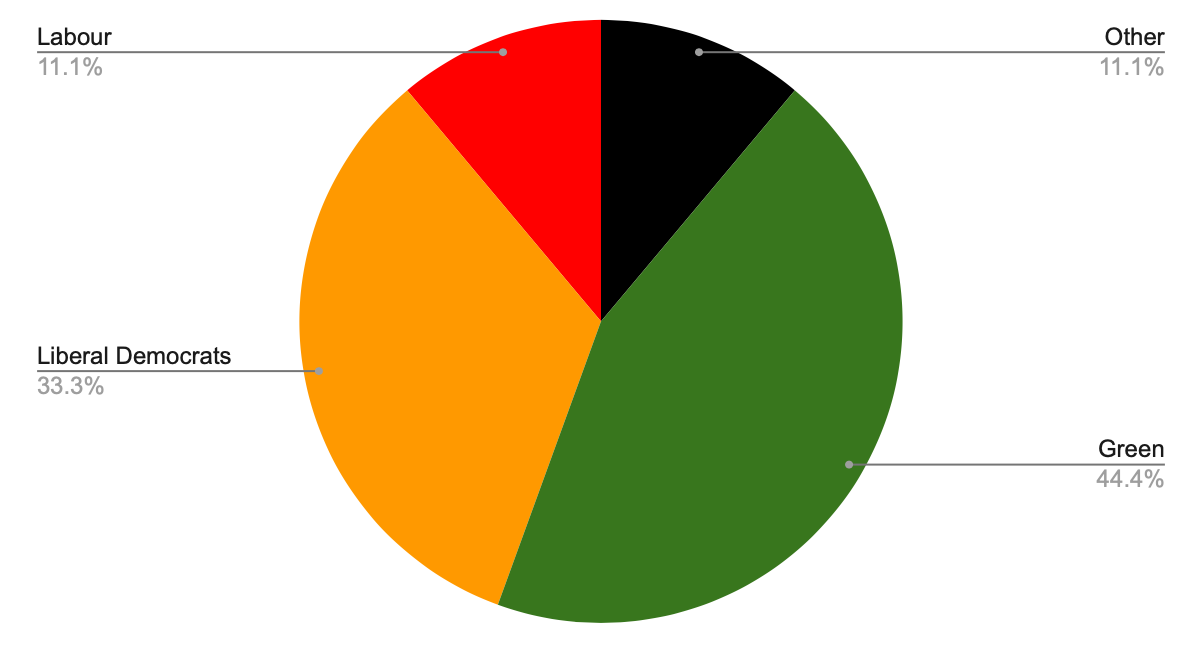“Starmer is unremarkable, in every sense of the word”: Your verdict on the general election

On the day the 2024 general election result was announced, The Isis released a poll. We wanted to know how you voted, why you voted, and how you felt about the state of UK politics going forwards. The results are in.
First, let me remind you of what went down on July 4th. When the exit poll predicted that Labour would win a landslide, it felt a bit like the ending to a film which one of your friends had already spoiled for you. True to form, Keir Starmer had managed to make a historic majority dull.
But as the night went on, things became a bit more interesting. First, it turned out that Labour, despite their gargantuan victory, had actually won fewer votes than they had in 2019, when Jeremy Corbyn led the party to its worst result since 1935. At the same time, the Conservatives—following five years of idiocy, scandal, and Liz Truss—achieved the worst result in their history. Many distinguished and illustrious MPs failed to return to Westminster, including Jacob Rees-Mogg and, well, Liz Truss.
In the constituency of Clacton, a smug-looking leather sandal was elected as an MP, and throughout the country, Reform UK plundered votes from disillusioned traditional Tories. Meanwhile, the Green Party returned four MPs and the Liberal Democrats won 71 seats, which must have been confusing for poor Ed Davey because he only has ten fingers on which to count.
In all, it isn’t entirely clear as to whether the public embraced boring Uncle Keir with open arms, or just shoved Rishi down the stairs. Perhaps the Daily Mail was right to dub Starmer’s victory a ‘loveless landslide’.
We wanted to get a sense of how our readers fit into these wider patterns. It might not come as a shock to many that The Isis readership is not the most representative demographic: if the election had been left to our poll respondents, then the benches of the House of Commons would look even greener than they are today.
Readers of The Isis, I hereby declare that you would have elected the Green Party into government (with 39.4% of the vote). The Lib Dems would have formed the Opposition (with 33.3% of the vote share), while Labour and the Conservatives would have been relegated to third and fourth parties (with 15.1% and 9.1% respectively).
After this, we asked our readers to summarise their reaction to the result in one word and their responses have been grouped into three broad categories: ‘optimistic’, ‘tentative,’ and ‘apathetic’. In addition to this, they were given a chance to elaborate further on their feelings about the state of British politics going into the future.
The results show a considerable amount of uncertainty and anxiety: just 32% gave an ‘optimistic’ reaction to the election result, while 39% were ‘tentative’, and the rest were ‘apathetic’. With under a sixth of you voting for the Labour Party, it is clear that our readers are not exactly enthusiastic about the prospect of Sir Keir’s administration.
A Lib Dem voter argued that they could hardly distinguish between Labour and the Conservatives, calling Starmer’s party “blue Labour.” Some raised the problems associated with a “supermajority,” and others pointed to the dangers of “internal squabbling” within the Labour Party. One respondent was more blunt: “Starmer is unremarkable, in every sense of the word.”
Uninspiring leadership aside, our readers were sceptical that Labour has their best interests at heart. One Green voter summarised some of the main areas of concern for people who decided not to vote Labour: “Although it is certainly a positive change to have a Labour government, I am still worried for the future, especially around whether Labour will be bold enough in terms of investment in the NHS and public services, tackling the climate crisis, and the Labour stance on Gaza as well as trans rights.”
About a third of our readers explicitly cited Palestine or trans rights as decisive reasons for their decision to vote against the Labour Party (80% of them voted Green and 20% Lib Dem). On the flip side, one respondent expressed concern at Labour’s “record on anti-semitism”: the party has long had issues with anti-Jewish sentiment within its ranks, most recently when veteran Labour gaffe-merchant, Diane Abbott, made a misguided remark comparing the kind of racism experienced by Jewish people to that experienced by other minority groups. A fifth of our respondents saw health and social care as one of their most pressing concerns in the election, and just 1 of these respondents voted for Labour.
The Labour manifesto was a masterclass in saying so little with so many words and, as a result, the public does not know exactly how Labour is going to approach these key issues. But our poll shows that many people are simply not convinced that Labour has the answers.
The Labour Party may have a lot to prove, but other trends have caused more concern among our readers, most notably the rise of Reform UK. As one Lib Dem voter wrote: “I’m […] concerned by the fact that Farage is now an MP and a lot of the more moderate Tories have lost their seats, because it might lead to a populist surge like in Europe.”
On his eighth attempt, Nigel Farage has finally managed to gain a foothold in parliament along with 4 other Reform UK MPs. 5 MPs might not seem like a lot, but Farage’s ability to enact political change from the sidelines should never be underestimated: this is the man who almost single-handedly brought about Brexit while not even a member of the British parliament. On top of this, we mustn’t forget that Reform won 14.3% of the popular vote (up from just 2% in 2019), beating the Lib Dems by over half a million votes. This makes them the third largest party in terms of ballots cast.
With the gales of hard-right populism blowing through Europe and America, we should not sneer at the threat posed by Nigel Farage to the stable, moderate democratic system which we cherish. The Great Disruptor has capitalised on a disenfranchised voter base and will jump at any opportunity to destabilise the governing Labour Party. As one of our respondents put it: “…if Starmer fails to achieve much progress, it’ll be populist open season.”
And yet, despite concerns about the rise of the hard right and the bland vision offered by Labour, most people could agree on one positive: “the Tory s***show” was coming to an end.
And this at least provides some grounds for optimism: Oxford students are hopeful that this change of government will bring a change of governance. But they have adjusted their expectations to meet the recent political reality. The election was not a ringing endorsement of the Labour Party and young voters, alienated by the two main parties, have looked elsewhere—to the Greens or the Liberal Democrats—in search of political refuge. But while young voters have looked left, older voters have turned right towards Reform.
Politics is fragmenting in a dangerous way, but there still remains a way forward: Labour must deliver and the Conservatives must change. Labour must be sensible, competent, and coherent in order to restore faith in our government, and the Conservatives must dissociate themselves from the worst excesses of the right wing and, instead, offer an attractive, right-of-centre alternative to the Faragist sect. We can pat our democracy on the back for not yet succumbing to American-style populism, but faith must be restored in the centre ground if we want to keep it that way.∎
How The Isis voted, as told through pie charts:
How respondents voted:

How respondents felt about the result:

How Green voters felt about the result:

How Lib Dem voters felt about the result:

How Labour voters felt about the result:

How Conservative voters felt about the result:

How ‘optimistic’ respondents voted:

How ‘tentative’ respondents voted:

How ‘apathetic’ respondents voted:

Graphs put together by Bertie Low. Words by Bertie Low.







